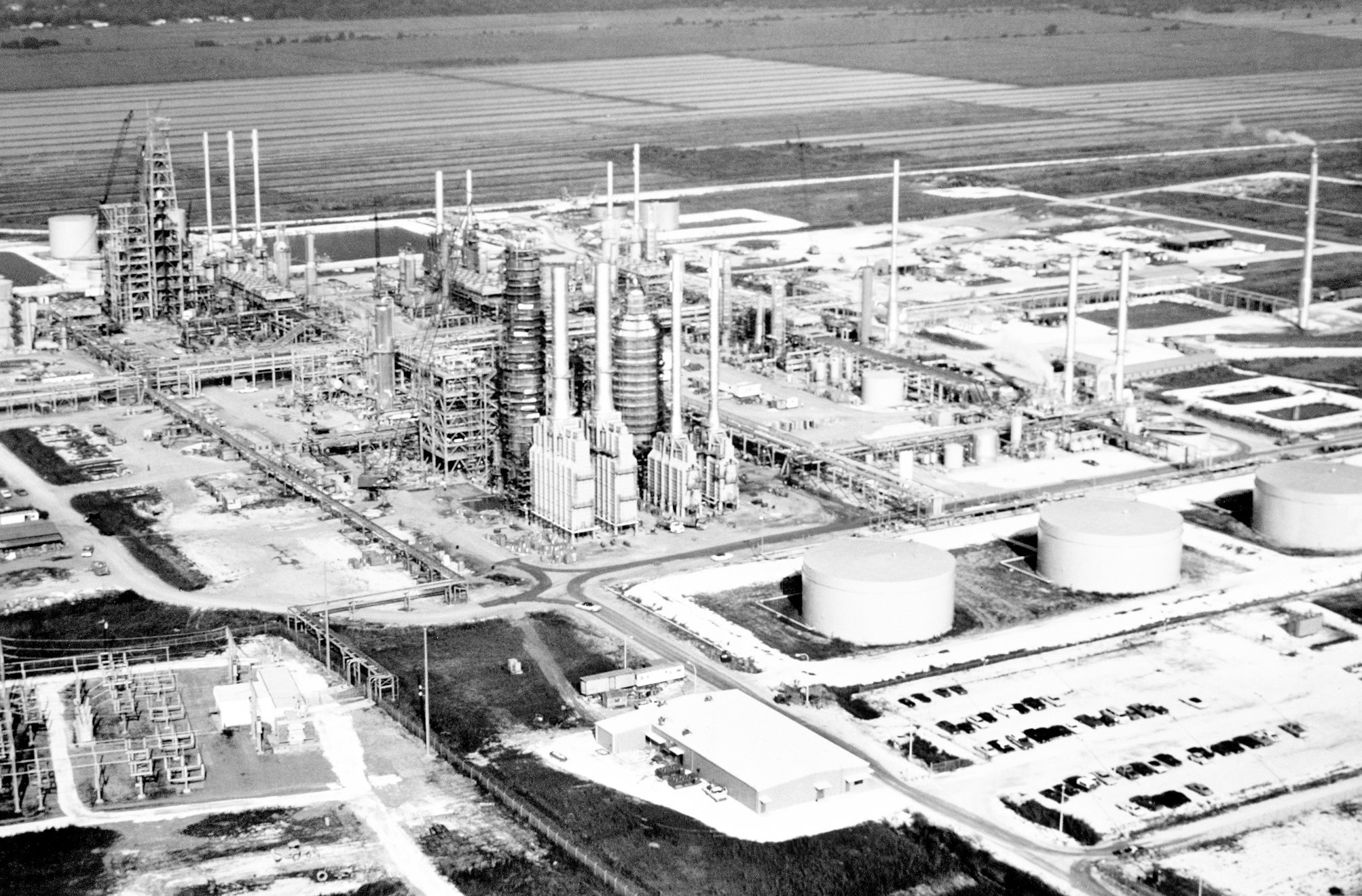Our Stories, Our History: Marathon Petroleum giant built on family
Published 10:53 am Saturday, August 26, 2017

- Marathon, first completed in 1976, is the last major grassroots refinery built in the United States.
When Robert “Poncho” Roussel learned of a new refinery being built in Garyville, he thought it would be interesting to work at a place from its beginning.
That thought motivated his decision in 1976 to leave a job at another refinery and become the eighth person hired in operations at the refinery ECOL, Ltd. was building.
“My job was to help get the refinery ready for start-up,” Roussel said. “Then one day I saw two Greyhound buses filled with men in suits riding through the plant.”

Tracy Case, above, general manager of Marathon Petroleum Company’s Garyville refinery, oversees an operation 41 years in the making.
The next morning Roussel’s father, who lived next door, went to Roussel’s house holding up the newspaper’s front-page headline, “ECOL Sells New Refinery to Marathon.”
“At the time, the only thing I knew named Marathon was a candy bar,” Roussel remembers with laughter. “My dad said, ‘You left a good job and a candy company bought the refinery!’”
It didn’t take long to discover Marathon Petroleum Company had nothing to do with candy, although the entrance to the 3,500-acre site along the Mississippi River is lined with stalks of sweet sugar cane.
The sale caused Roussel some initial concern about his future, but he soon discovered being at Marathon gave him the opportunity to work with great people.

St. John the Baptist Parish motorists are familiar with the refinery’s large production infrastructure, which is easily visible from Airline Highway and River Road.
“Marathon is very people oriented,” Roussel said. “It’s one big family. Never in my life did I think I would get to know the top managers of a refinery.”
Tracy Case, general manager of the Garyville refinery, echoed Roussel’s sentiment.
“Marathon is a big company with a lot of capabilities, but small enough to know everybody,” Case said. “We’re still family.”
Last year, as Marathon reached the 40th year of operation in Garyville, about 100 of its employees experienced the flooding of their homes, and the Marathon family responded.
Case said a disaster team was formed with resources from the corporate office and the local plant to purchase supplies for those in need.
Several apartments were rented for the employees most severely affected.
“Employee teams were also formed,” Case said. “They helped to demolish houses, clean up properties and prepare for rebuilding.”
In addition to caring for its family, Marathon extends its support to the community in a variety of ways. To name only a few, it partners with local schools to provide monetary and mentoring support, supplies area families in need with Thanksgiving turkeys and is the title sponsor for the Andouille Festival.
Additionally, Marathon is the largest fundraiser for the United Way in St. John the Baptist Parish.
Case said Marathon is also working to connect the South Central Louisiana Technical College with the school system.
“We’re working towards dual enrollment,” Case said, “so that high school students can graduate with minimal time left in the Operator Technician program at the technical college.”
Case, who began his career with Marathon 35 years ago as a chemical engineer out of Oklahoma State University, said from his first day at Marathon, safety was top priority.
The refinery, which employs approximately 940 people, doubled in size with expansion in 2009. Marathon has grown from processing approximately 200,000 barrels of crude oil per day in 1976 to an average of 543,000 barrels daily, while producing less emissions than it did at its beginning, company officials said.
“While we have always stressed safety,” Case said, “we have taken it to a completely different level.”
The hard hat that was required years ago is only one part of an employee’s uniform today. Nomex overalls, gloves, safety glasses and hearing protection are now standard wear.
The commitment to safety, training, mechanical integrity and constant maintenance checks earned Marathon two environmental leadership awards from the Louisiana Department of Environmental Quality, 22 Governor’s Environmental Leadership Awards since 1996 and the distinction of being the only refinery accepted in the EPA’s Voluntary Early Reduction program for Air Toxics under the Clean Air Act.
Case said the Garyville refinery is one of the most efficient in North America, and ranks in the top ten percent worldwide.
Although faced with the responsibility of managing a refinery with worldwide recognition, Case has never lost sight of Marathon’s local significance.
“We strive to cultivate and demonstrate a responsible, positive commitment to the community,” Case said.
— By Ronny Michel





